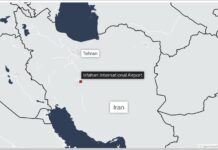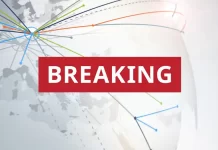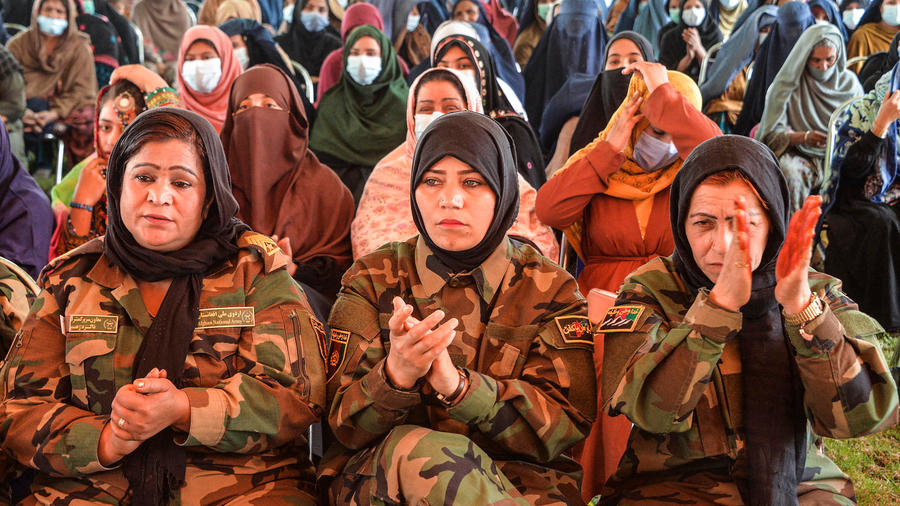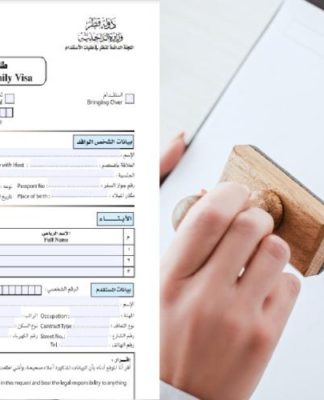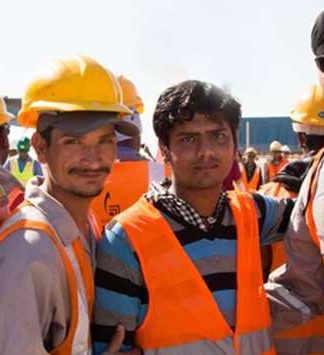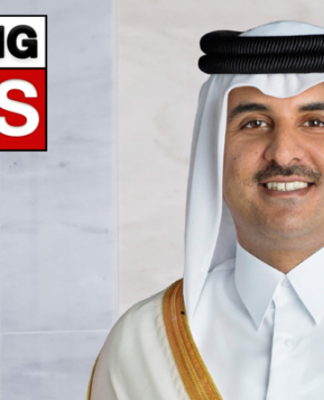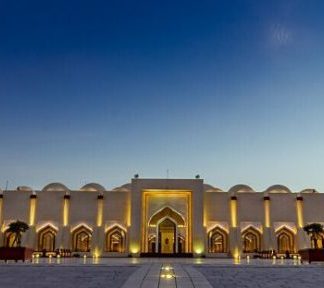A blunt US letter aims to revive the Afghan peace process, but jolts women on a special day
Issued on:

A leaked letter from US Secretary of State Antony Blinken to Ashraf Ghani instructing the Afghan president to comply with new initiatives to restart the peace process to enable a US troop pullout caught Afghan women’s rights activists by surprise on International Women’s Day and underscored the disconnect between Washington’s words and deeds.
International Women’s Day has been a major event on the official Afghan calendar since the 2001 US invasion toppled the Taliban. Over the past two decades, schoolgirls, teachers, activists, female politicians and professionals have attended numerous events across the country on March 8, marking women’s rights achievements and highlighting the many challenges still confronting Afghan women.
This year, the pandemic forced the annual Women’s Day commemorations online, but Afghan leaders as well as ambassadors of donor countries tweeted greetings, posted statements and bestowed awards in virtual ceremonies.
On official Taliban platforms though, March 8 passed without a mention.
Over the past seven years, the Taliban has engaged in a peace process in Doha, Qatar, which has seen them negotiating in luxury hotels with US and Afghan government delegations that include female negotiators, employing technology and media-savvy strategies that earned them a “Taliban 2.0” moniker, distancing the Islamist movement from its brutal reign in the 1990s.
But on Monday, March 8, while the world marked International Women’s Day, the Taliban decided to commemorate a 2002 engagement with US forces in a remote valley near the Afghan-Pakistan border that neither side won. A statement posted on Taliban spokesman Zabihullah Mujahid’s Twitter account had all the old flourishes of “jihadi heroism” but no mention of women, whether they were present or had any opinions about the “historic” battle.
Almost two decades later, Afghan women’s rights activists say their voices are once again being drowned out, this time not by the clamour of war, but in a rush to hammer out a peace that can enable a US troop pullout without adequate security and human rights guarantees for civilians on the ground.
‘We will never compromise our dignity’
Afghanistan, with its “forever war”, is the most vexing foreign policy dossier that US President Joe Biden inherited from his predecessor. Shortly after Biden’s inauguration, the White House announced a review of a February 2020 US-Taliban agreement, which was welcomed by top Afghan officials.
While all parties agree on the need to end one of the modern world’s longest-running conflicts, the timetable of the Trump era agreement, that will see a pullout of US troops in Afghanistan by May 1, is widely viewed as hasty and destabilising.
But barely two months before the May 1 deadline, Afghans this week have been jolted by a letter from US Secretary of State Antony Blinken to Afghan President Ashraf Ghani, which was leaked by the Afghan Tolo TV station on Sunday.
Blinken’s bluntly worded letter instructed the Afghan leader to display “the urgent leadership that President Biden and I ask of you in the coming weeks” while making it “clear” that the US is “considering the full withdrawal of our forces by May 1st”.
While US State Department officials have refused to comment on the veracity of the letter, Abdullah Abdullah, chairman of Afghanistan peace council, confirmed to reporters in Kabul that a similar letter was sent to him. The US has asserted that “all options remain on the table” for its 2,500 troops in Afghanistan and stressed that no decisions have been made about its military commitment after May 1.
The letter sparked a flurry of denunciations by top Afghan officials that overshadowed International Women’s Day commemorations and underscored the threats to the country’s democratic and civil society gains over the past two decades.
“They have the right to decide on their 2,500 troops. We also have the right to decide on the fate our 35 million people,” Afghan Vice President Amrullah Saleh told an event in Kabul. “We will never compromise our dignity. Our dependency on the outside world does not mean we obey illegitimate demands,” he added.
The letter refers to new “roadmap for peace” proposals, which were also leaked by Tolo TV, and informed Afghan leaders that Washington will ask the UN to convene a meeting of envoys from Russia, China, India, Iran and the US to “discuss a unified approach to supporting peace in Afghanistan”.
Turkey will also be asked to host of meeting of senior Taliban and Afghan government representatives, noted Blinken.
“These are the first indications of this administration’s policy review on Afghanistan,” explained Michael Kugelman from the Washington, D.C.-based Wilson Center in an interview with FRANCE 24. “It seems this administration is going to make a very ambitious effort to create better conditions on the ground, a more fortuitous environment for a troop pullout, and the US wants progress on the peace process.”
Something old, something new
But the devil lies in the details of the latest bid to jump-start the moribund peace process, and that has raised alarm bells in Afghanistan.
On the one hand, the new initiative seeks greater participation of regional players – including Russia and Iran – while using Turkey as a mediating power between the Taliban and the Afghan government. But on the other hand, it reimposes terms on the two Afghan parties engaged in negotiations that both sides have emphatically rejected in the past.
The proposal calls for an immediate ceasefire, which the Taliban have repeatedly rejected. It also provides details on the establishment of a transitional government of non-elected representatives that Ghani has opposed. The Afghan president insists that “fair, free and inclusive elections” is the only way to form an Afghan government.
“The letter suggests that the Taliban somewhat miraculously agree to something they have vowed not to, and there’s very little stated on how to move things forward to get to a very ambitious end,” said Kugelman.
The reappearance of the old peace process stumbling blocks has dismayed several Afghans.
“Everyone was expecting the policies of this administration to be different from that of the Trump administration because of the flawed [February 2020] agreement between the US and the Taliban. It was done based on the interests of the US to withdraw the troops and not necessarily on bringing peace in Afghanistan,” explained Belquis Ahmadi of the Washington, D.C.-based United States Institute of Peace.
“It gave a lot more recognition to the Taliban at the expense of the inclusion of the Afghan government and the vast majority of the Afghan population, including women, who have paid a hefty price in the ongoing war,” said Ahmadi, who is also a board member of Women for Afghan Women, an NGO that runs domestic violence shelters and other programmes across Afghanistan.
The Arg presidential palace’s intransigent inhabitants
The US sidelining of a democratically elected Afghan government in the peace process has enraged many Afghans, including critics of the Ghani administration who argue that for all its flaws, the country’s fledgling democratic structures are the most cherished legacy of the US-led intervention.
The US and the Taliban are the only signatories to the February 2020 agreement, which does not include the Afghan government, an entity that the Taliban views as a “puppet administration” – an opinion the US, by its actions, appears to support, according to Afghans worried about their country’s future.
Last year, the Ghani administration complied with a controversial prisoner release stipulated in the February 2020 agreement, which called on the Afghan government to release 5,000 Taliban prisoners in exchange for the Taliban’s release of 1,000 Afghan soldiers. France was one of the countries that raised an objection to “the release of individuals sentenced for committing crimes against French nationals, particularly soldiers and humanitarian workers”.
The Biden administration’s race to end “the forever war”, coupled with its pointed directives, sets the stage for another round of acrimonious misgivings between Kabul and Washington, believes Kugelman.
“This, to me, is a signal that US-Afghan relations could find itself on a collision course very soon. This is the first time the new US administration has endorsed the idea of a transitional government, something President Ghani has said he would not agree to ‘as long as I am alive,’” said Kugelman referring to a comment that was widely reported in the Afghan press earlier this year.
The collapse of trust between Washington and successive occupants of Kabul’s Arg presidential palace has been another fallout of the Afghan conflict. Ghani’s predecessor, Hamid Karzai – Afghanistan’s only leader to hand over power in a peaceful transition – ended his term in acrimony as media reports quoted senior US officials questioning the Afghan leader’s mental stability and quipping that the man in the Arg was “off his meds”.
Ghani – an economist and former World Bank official – was initially viewed as a welcome break from Karzai, with US officials hailing his experience in Western academic and multilateral institutions. But the honeymoon period soon ended, with US media reports levelling familiar criticisms of yet another isolated, intransigent Afghan leader surrounded by loyalists.
“Washington has trouble getting along with Afghan presidents,” Kugelman conceded. “It’s the unfortunate story-line of the US role in Afghanistan.”
Afghanistan’s dead courageous women award winners
Another recurring narrative has been the US mismatch between words and deeds on the issue of Afghan women’s rights. In 2001, when the US launched its Afghanistan military operation, then US first lady, Laura Bush, declared the war on terrorism was a “fight for the rights and dignity of women” in Afghanistan.
Two decades later, the fight’s sights have tightened, with the US accepting Taliban pledges to cut ties with al Qaeda under the terms of the February 2020 agreement while effectively trusting the Islamist movement to handle threats from the Islamic State (IS) group and other jihadists operating on the terrain.
The discourse of commitment to women’s rights however continues.
In Afghanistan, International Women’s Day this year was overshadowed by Blinken’s letter, with national air waves and social media chatter dominated by politicians denouncing the perceived concessions to the Taliban.
Meanwhile in Washington, D.C., a new US first lady commemorated courageous women on Monday, awarding 21 women with the International Women of Courage Awards.
US First Lady Jill Biden awarded “fearless” women from 15 countries – including Belarus, China, Iran and Myanmar – in a virtual ceremony hosted by the State Department. But Afghanistan’s award winners were all dead. The 2021 International Women of Courage Awards were given posthumously to seven Afghan women who were assassinated in 2020 while serving their communities.
Assassinations and attacks targeting prominent women in politics, education, law enforcement and civil society tripled last year and could increase as the spring fighting season begins. While the IS group has claimed some attacks, most are unclaimed, with the government and the Taliban often blaming each other.
According to Afghanistan’s Independent Human Rights Commission, 65 women were killed and 95 wounded in targeted attacks in 2020. The attacks have increased suspicions of a Taliban campaign to hollow out Afghan civil society, particularly of women, before the group gains effective control of the country following a US troop pullout.
“The Taliban deny responsibility, but at the same time they reject calls for a ceasefire. If they were really not involved, the least they could do is declare a ceasefire so people – and women – can see who’s responsible,” said Ahmadi. “Their refusal to negotiate a ceasefire tells a different story.”
Not the right time for justice and accountability
In a 2019 statement released before a Doha meeting between Taliban and Afghan government representatives, the group committed to women’s rights “within the Islamic framework of Islamic values”. But the statement also denounced “so-called women’s rights activists” who were encouraging women to break Afghan customs.
Despite their Taliban 2.0 media-friendly strategy, the group has declined to provide details of their vision of Islamic – or Sharia – law, a vague set of jurisprudence subject to different interpretations by various schools of Islam.
“I personally feel Sharia, or Islam, is being used as a tool to advance their political ambitions,” said Ahmadi. “I don’t think even the Taliban themselves know how to answer this because they have been asked publicly and behind closed doors, but they have failed to elaborate.”
Daily newsletterReceive essential international news every morning
Thousands of miles away from Doha’s luxury hotels, the situation on the ground for women in Taliban-controlled areas of Afghanistan is deteriorating, with local commanders changing unwritten rules that affect women and girls at whim.
Taliban commanders in the northeastern Takhar province, for instance, banned girls from going to school beyond Grade 7 last week, according to Ahmadi. “I don’t know where these decisions on age and grades come from. My interpretation of Sharia is that women have no limits to an education,” she said.
Afghan women’s rights issues that once dominated international headlines now slip past news agendas, said Ahmadi amid fears that the accelerated peace process pace in the coming weeks could push these topics further off the radar.
Speaking to FRANCE 24 shortly after a virtual meeting with 32 female activists from across Afghanistan, Ahmadi said the women reported feeling abandoned by the world, and particularly by the foreign press.
“The general view is that women are opposed to peace, so they are not being heard,” explained Ahmadi. “They believe that because women want justice and accountability, they will be an impediment to the peace process and that’s why their voices are being excluded these days.”





